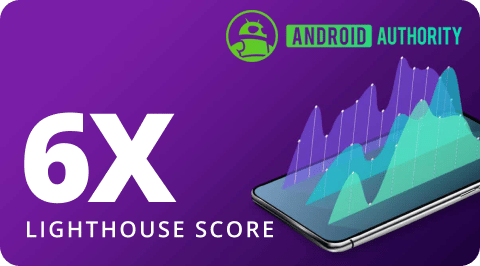
How To Revolutionize Development With Staging Sites
With ample experience designing and building WordPress websites on servers other than WP Engine, our development team has developed a love-hate relationship with the content management system over the years. WP Engine’s staging area functionality, however, has them feeling more of the love and less of the hate these days. Let me explain.
Sunlight Media LLC is a premium Los Angeles-based web design and development company. Our goal is to create websites that provide a great user experience, and also make it easy for our clients to make content updates on their schedule without having to call us (or pay us) every time they want to add a new blog or update their product images. We’re talking about businesses that aren’t big enough to have their own IT departments or in-house developers. They need to rely on us to create efficient systems that they can use with limited training. That’s generally why we recommend WordPress for this type of client.
Of course, any time you use a content management system like WordPress to make it easier for non-technical end users to update websites, you necessarily sacrifice the ability for developers to have the level of control they like to make things happen. That’s where the “hate” part of the love-hate relationship is rooted.
As soon as we started using WP Engine, I immediately noticed a reduction in complaints from the development team. I knew there was plenty for them to be getting on with, so I asked them what happened. The response was unanimous: WP Engine had made it easier for the team to complete development tasks, and the staging area was one of the top factors that kept coming up.
So what does the staging site actually allow a developer to do? Here are six ways that this functionality provides more to our development team than we were able to get from other hosting platforms.
Troubleshooting Theme Issues Made Easy
If you’ve spent any time at all doing development work for WordPress you’ve undoubtedly run into theme issues. These can manifest themselves when you update the theme, update WordPress, edit theme files, add new plugins, or for a number of other reasons. Now, we always test theme updates in the staging area so that if something breaks, it doesn’t affect what might be the lifeblood of our client. And if something does go wrong on the live site, we can revert it to the last backup on live and start troubleshooting on the staging site. The last thing we want to do is have actual users see broken elements on our client’s website.
Simplifying Plugin Conflict Resolution
Ah, WordPress plugins. While sometimes it’s unavoidable to fall back on plugins for functionality, there are generally ways around most issues that might require a plugin so as to limit the number of plugins on any given install. I can’t tell you how many times we have inherited a WordPress site that is overburdened with unnecessary plugins.
Why do we so aggressively avoid plugins, you might ask? Well, they have a habit of not playing nice with one another. When that happens, the side effects could range from minor isolated issues that only affect the plugin to sitewide issues that, at first glance, seem unrelated. This is where the staging site really comes in handy. We can troubleshoot plugin conflicts, remove individual plugins, update plugins, and play with plugin settings. Basically, this allows us to diagnose the problem and fix it without the client’s site being affected in the process.
Stop Worrying About Server Side Caching
Server-side caching is a great tool for the end user, making their experience faster and more seamless. But for a developer it can become a nightmare, slowing down both initial development and testing. The solution on other platforms is to turn off caching on the site while development is ongoing. That’s a difficult decision to make, though, because it can start affecting the user experience if caching is left off for any length of time.
With the staging area, however, we never have to worry about caching, because, magically, it never happens. This saves our team so much time! And when a page or element is ready, we can show the client right on the staging site without worrying that they might see an older version of the page.
The Ability To Test Import Files
It’s always a scary moment when importing files such as blog posts, products, reviews, or any other type of data on to a website. In many cases they’ll import properly and appear just where you wanted them. In other cases they break the website. We always test the import of files on the staging site first so that we don’t have any unpleasant surprises on the live site.
Risk Free PHP Editing
Sometimes you just have to edit PHP files or functions in WordPress. These are often files that affect the way the core functions of the website work and there is a greater risk of damaging something important when working with PHP files. There are even cases where editing PHP incorrectly could prevent a backup from working correctly, causing permanent damage to a website. With the WP Engine staging site, we are able to work with these files without any risk of ruining the live site.
Redefining Test Pages
At Sunlight Media LLC, we try to offer our clients more than our competitors can. To that end, we’re always paying attention to the analytics data on our clients’ websites and making suggestions as to how to improve their performance. One way we can do this is by looking at the visitor flow and drop-off rates at certain pages in that flow, and then make suggestions that adding a page or editing the way a page works could improve the way that people interact with the site.
In many cases we’ll create a test page or edit a page substantially and then do user testing to make sure we are making a good decision. It’s so much easier to do this in the staging area than to make the additions or changes on the live site. If we, along with the client, deem the test page to be something we want to move forward with, we can just transition it immediately to live (that’s just one click). If we want to do A/B testing on the live site we can easily export the page and then import it to the live site, and if we decide the page was an all-around bad idea, we can simply delete it.
To conclude, my sentiment mirrors that of our development team. WP Engine’s staging area helps our business to run more efficiently and to minimize risk to our clients’ sites. It’s just one of the reasons I recommend WP Engine to anyone who is running a WordPress site.
You can find out more about Sunlight Media LLC at www.sunlightmedia.org.
Angelo Frisina has been involved in the creative IT world for over 15 years. He built his first website back in 1998 using Dreamweaver, Flash and Photoshop. He expanded his knowledge and expertise by learning a wider range of programming skills, such as HTML/CSS, Flash ActionScript and XML. Angelo completed formal training with the CIW (Certified Internet Webmasters) program in Sydney Australia, learning the core fundamentals of computer networking and how it relates to the infrastructure of the world wide web.
Having worked with a large variety of companies within Australia and the USA, has provided Angelo with a diverse set of skills and a strong understanding of individual customer needs. Sunlight Media LLC strive for 100% customer satisfaction. Angelo’s primary role is to ensure that this objective is met with every project the team encounter.















For us, too, the staging site is probably the #1 can’t live without feature that WP Engine provides. I don’t usually comment, but I wanted to about this. It’s just an awesome feature.
Staging sites have made a big different to our WordPress development process too. They make it so easy to move between staging and live, in all the scenarios you have described. It’s great that when you move from staging to live, you can select which database tables on the live site to overwrite. The only problem is that a lot of content is stored in wp-posts and on interactive sites (e.g. BuddyPress or bbPress sites), you can’t make content changes on a staging site and then copy to live because this would overwrite your users’ recent interactions, which are stored in the same database table. I don’t know whether there’s any way around this because it’s not WP Engine’s fault that plugin developers haven’t bothered to store their data in unique tables, but it would be amazing if a solution could be found because staging sites would be come even more useful then.
I trully think this is one of those KEY features that add so much value to a service like this. This kind of feature makes a difference. Great stuff.
After Reading all this still confused what you people are discussing about LOL 😀